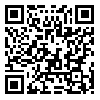Volume 20, Issue 2 (July 2013)
J Birjand Univ Med Sci. 2013, 20(2): 165-174 |
Back to browse issues page
Download citation:
BibTeX | RIS | EndNote | Medlars | ProCite | Reference Manager | RefWorks
Send citation to:



BibTeX | RIS | EndNote | Medlars | ProCite | Reference Manager | RefWorks
Send citation to:
Ziaee M, Miri M, Motevali S. Surveying Birjand faculty members’, paramedical and nursing students' viewpoints on educational evaluation plan. Journals of Birjand University of Medical Sciences 2013; 20 (2) :165-174
URL: http://journal.bums.ac.ir/article-1-1403-en.html
URL: http://journal.bums.ac.ir/article-1-1403-en.html
1- Birjand Hepatitis Research Center, Birjand University of Medical Sciences, Birjand. Iran , Dr.m.ziaee@gmail.com
2- Member of The Research Center of Effective Social Factors on Health, Birjand University of Medical Sciences, Birjand, Iran.
3- Birjand University of Medical Sciences, Birjand, Iran.
2- Member of The Research Center of Effective Social Factors on Health, Birjand University of Medical Sciences, Birjand, Iran.
3- Birjand University of Medical Sciences, Birjand, Iran.
Abstract: (16511 Views)
Background and Aim: The aim of educational evaluation is to improve learning and create a suitable situation for academic staff. The present study was performed to assess the viewpoints of BUMS teachers and students regarding the evaluation plan and the effect of it on educational development. Materials and Methods: The present study was a cross-sectional and descriptive-analytical one. It was performed in the second half of the academic year 2008-9 in Birjand University of Medical Sciences. The study sample included 79 faculty members and 321 paramedical and nursing students. Their opinions were separately studied using two questionnaires for students and faculty members. Content validity and reliability of the two questionnaires employed were confirmed by respective specialists. The gathered data was analyzed by means of SPSS software (V: 16) and Chi-square at the significant level α≤0.05. Results: It was found that 76 % of faculty members believed that evaluation had some positive effects leading to the betterment of the process of teaching. But, %74.7 of them believed that some changes in the process should take place. Besides, %69.9 of the faculty members thought that the questionnaires were irresponsibly and carelessly filled out by the students. On the other hand, %59.5 of the students believed that the results of the evaluation were not considerably taken into account. They believed that evaluation forms were not suitable evaluative means for teaching. Conclusion: The results of the present study showed that most of faculty members and students are not optimistic about evaluation plan. Therefore, assuring students and teachers of the effectiveness of evaluation regarding the improvement of educational condition will result in more responsibility in students and more motivation in their teachers.
Type of Study: Original Article |
Subject:
Medical Education
Received: 2013/04/29 | Accepted: 2013/08/14 | ePublished: 2014/09/22
Received: 2013/04/29 | Accepted: 2013/08/14 | ePublished: 2014/09/22
Send email to the article author
| Rights and permissions | |
 |
This work is licensed under a Creative Commons Attribution-NonCommercial 4.0 International License. |





